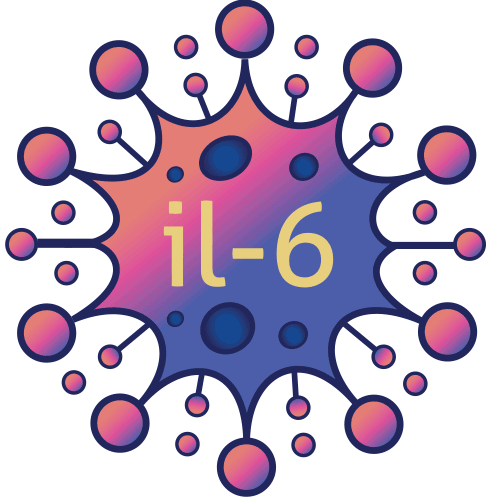Sepsis: The Link to IL-6
- From The Mind of AI
- Nov 17, 2024
- 2 min read
Updated: Dec 30, 2024

Sepsis, a life-threatening response to infection, is one of the leading causes of mortality worldwide. It occurs when the body’s immune response becomes dysregulated, leading to widespread inflammation, tissue damage, and organ failure. IL-6 is a key driver of this inflammatory cascade, making it a critical focus for understanding and managing sepsis.
What is IL-6? IL-6 is a cytokine that plays an essential role in inflammation and immune regulation. While necessary for fighting infections, excessive IL-6 can lead to the uncontrolled inflammatory response seen in sepsis, often resulting in damage to vital organs and increased mortality. Monitoring and managing IL-6 levels is vital in the early intervention of sepsis to improve survival outcomes.
IL-6 and Sepsis Research High IL-6 levels in sepsis patients correlate with increased severity and mortality. IL-6 acts as a marker of systemic inflammation, indicating the body’s excessive immune response to infection. Targeting IL-6 in sepsis has shown promise in reducing organ damage and mortality rates, and new therapies aim to control the inflammatory cascade by modulating IL-6.
Supplements to Reduce IL-6 Levels
Supplement | Recommended Dosage | Benefits |
NAD+ | 300 mg to 600 mg per day | Supports cellular health and reduces oxidative stress associated with inflammation. |
Resveratrol | 100 mg to 250 mg per day | Reduces IL-6 levels, decreases inflammation, and protects tissues. |
Magnesium | 300 mg to 400 mg per day | Helps regulate immune response, lowers IL-6, and supports recovery from sepsis. |
Vitamin C | 1,000 mg to 2,000 mg per day | Acts as an antioxidant that can reduce oxidative stress and lower IL-6. |
Curcumin | 500 mg to 1,000 mg per day | Has anti-inflammatory properties and can help lower IL-6 levels, supporting immune function. |
Omega-3 Fatty Acids | 1,000 mg to 2,000 mg per day | Provides anti-inflammatory effects and helps reduce IL-6, beneficial for overall immune health. |
Lifestyle Modifications to Reduce IL-6 Levels
Method | Description |
Balanced Diet | An anti-inflammatory diet supports immune function and can help regulate cytokine levels, reducing the risk of excessive inflammation. |
Moderate Physical Activity | Regular exercise promotes healthy immune function, reduces IL-6, and supports recovery post-infection. |
Stress Reduction | Reducing stress lowers IL-6 levels and helps prevent the dysregulated immune response associated with sepsis. |
Proper Hydration and Rest | Essential for sepsis recovery; hydration supports circulation, and rest aids in the body’s repair processes. |
Path Forward in Sepsis Management By addressing IL-6 in sepsis patients, healthcare providers can intervene more effectively to prevent organ damage and mortality. This approach, combined with lifestyle modifications and targeted supplements, offers hope for managing the severe inflammatory response that characterizes sepsis.

Comments